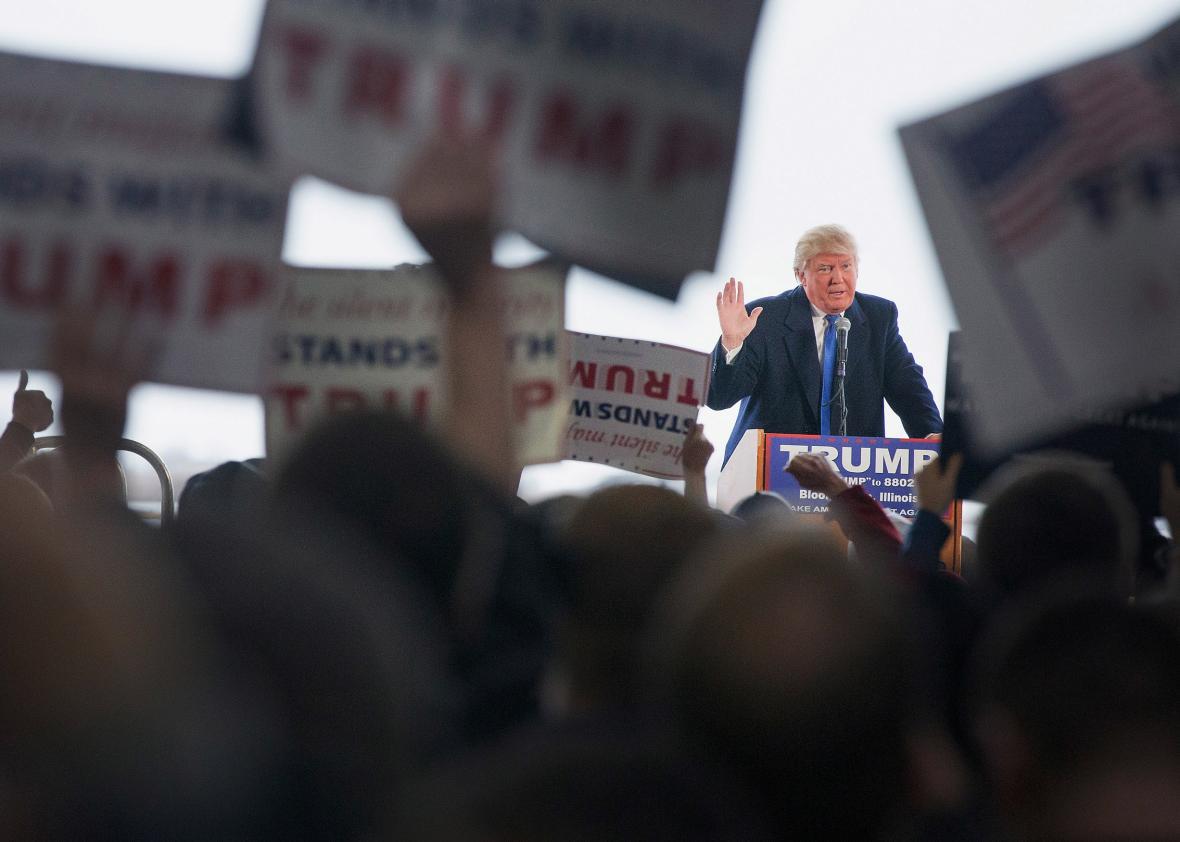Donald Trump isn’t an American demagogue who would get crushed in a general election, he just plays one on TV. That, in short, was the pitch the GOP front-runner’s top campaign strategist made to the Republican National Committee behind closed doors on Thursday.
“When he’s sitting in a room, he’s talking business, he’s talking politics in a private room, it’s a different persona,” Paul Manafort said at a private meeting with RNC members at their spring summit in Florida, a recording of which was obtained by the New York Times, Washington Post and other outlets. “When he’s out on the stage, when he’s talking about the kinds of things he’s talking about on the stump, he’s projecting an image that’s for that purpose.” At another point in Manafort’s presentation—which reportedly included PowerPoint slides—the veteran GOP strategist declared: “He gets it. The part that he’s been playing is evolving into the part that now you’ve been expecting, but he wasn’t ready for because he had to first feed the first phase.”
This is not the first time that Team Trump has advanced the theory of the Two Donalds in one way or another. Ben Carson made headlines when he said something similar while endorsing his former rival last month—“There’s the one you see on the stage and there’s the one who’s very cerebral, sits there, and considers things very carefully”—and Trump nods to the idea every time he hypes himself as a modern day P.T. Barnum, suggests that he would “act differently” in the White House, or touts his ongoing political “evolution” as a selling point.
But Manafort making that argument explicit illustrates the lengths Trump is now going to to run twin campaigns: a public one aimed at stoking the passions of his base against the Republican Party, and a private one designed to convince that same Republican Party that he’s actually been one of them all along. Generally, that kind of dual approach isn’t all that unusual—“Politician Panders to His Audience” is not exactly a stop-the-presses headline—but Trump’s effort is unique given just how massive the chasm is between the candidate he is offering to voters on the stump and the one he’s trying to sell to the establishment behind the scenes.
From what we’ve seen to date, it appears that Trump’s die-hard supporters are willing to believe that their Trump is the “real” Trump. The GOP establishment, meanwhile, has been less willing to believe there is anything approaching a coherent set of conservative principles beneath all of his bluster. If Trump ultimately does become the nominee, though, don’t be surprised if many in the party convince themselves they have no other choice than to play along.
Previously in Slate:
